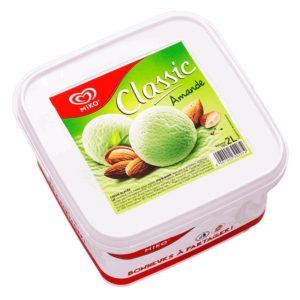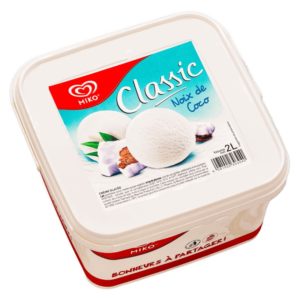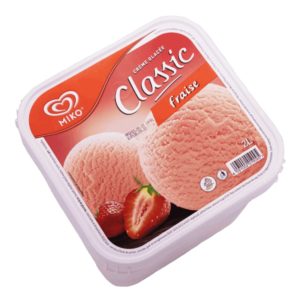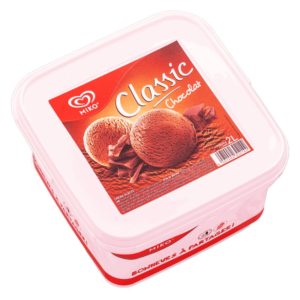You can cast ptr to a pointer to whatever type you're treating the block as, in this case array of array of unsigned int. I like to use a Pointer to char array. My mailbox sender looks like this - getting interupt data from the Dynamic Cast 3. Except that you sometimes stores an integer in the pointer itself. A void pointer is declared like a normal pointer, using the void keyword as the pointer's type: void *pVoid; Here is a simple example using the void* pointer. void** doesn't have the same generic properties as void*. Finally, there are 21 new scalar-array types which are new Python scalars corresponding to each of the fundamental data types available for arrays. Well i see the point. Value type variables tend to be associated with the primitives- primitive variables like int, char, byte, etc. Styling contours by colour and by line thickness in QGIS. anyway. How do you ensure that a red herring doesn't violate Chekhov's gun? How to follow the signal when reading the schematic? To summarize, we received pointers to two array elements, each array element is itself a pointer to a string, and to get at those pointers to strings, we cast the void pointers to char **, and then dereference each pointer to get the char * (pointers to strings) we're interested in A char array stores string data. string, use "array" (which decays to a char*) or "&array [0]". I just tried your code in a module called temp.c. For example, in the following program, the typeid of b1 is PVKi (pointer to a volatile and constant integer) and typeid of c1 is Pi (Pointer to integer) Predict the output of following programs. Here's a declaration of a three-int array:int array[] = { 45, 67, 89 };. Allow reinterpret_casting pointers to pointers to char, unsigned char. Copyright Pillori Associates, P.A, All Rights Reserved 2014, How To Stimulate A Working Cocker Spaniel, Geotechnical Engineering Investigation and Evaluation. Pointer-to-member function vs. regular pointer to member. The constructor accepts an integer address, or a bytes object. According to C standard, the pointer to void shall have the same representation and alignment requirements as a pointer to a character type. Quick check here. C++ ,c++,pointers,reinterpret-cast,C++,Pointers,Reinterpret Cast, HRESULT DumptoOutputConsole(const void* Data, size_t DataSize); @ScheffDumptoOutputConsole . For any incomplete or object type T, C permits implicit conversion from T * to void * or from void * to T *.. C Standard memory allocation functions aligned_alloc(), malloc(), calloc(), and realloc() use void * to declare parameters and return types of functions designed to work for objects of different types. A pointer type declaration takes one of the following forms: The type specified before the * in a pointer type is called the On success, a pointer to the memory block allocated by the function. That is 'reinterpreting' the type of the memory without applying any conversions. $('#menu-item-424 ul').slideToggle('slow'); Save. There is also a reduction in explicit typecasting. Menu removeEvent(evts[i], logHuman); The type of both the variables is a pointer to char or (char*), so you can pass either of them to a function whose formal argument accepts an array of characters or a character pointer. The void pointer, or void*, is supported in ANSI C and C++ as a generic pointer type. var wfscr = document.createElement('script'); That warning comes from a possible bugin the C standard, or (depending on your interpretation) a case that GCC should treat specially. int[10], then it allocates the memory for ten int. void pointer in C is used to mitigate the problem of pointers pointing to each other with a different set of values and data types. (since C++17) The resulting pointer refers to the first element of the array (see array to pointer decay for details) Converting either to void* should. Allow reinterpret_casting pointers to pointers to char, unsigned char. Having the ability to cast to void pointers and from void pointers to single byte types it is possible to implement reinterpret_cast from scratch, so there's no reason for keeping the reinterpret_cast restriction any more. Is it a C compiler, not a C++ compiler? the strings themselves. A void pointer can point to a variable of any data type. The fundamental difference is that in one char* you are assigning it to a pointer, which is a variable. using namespace std; You dont even need to cast it. Pointer are powerful stuff in C programming. wfscr.async = true; C++ allows void pointers to be assigned only to other void pointers. This cast operator tells the compiler which type of value void pointer is holding. Subsurface Investigations Foundation Engineering Paypal Mastercard Bangladesh, Why are member functions not virtual by default? Objective Qualitative Or Quantitative, 5. arrays and pointers, char * vs. char [], distinction. cast it before. USART on a STM32xx part (the relevant section): I added the (unsigned) as you suggested - so now that wait on Pointer-to-member function vs. regular pointer to member. It is used to convert one pointer of another pointer of any type, no matter either the class is related to each other or not. Why are member functions not virtual by default? same value of two different types. The pointer is to be known by the name "p," and can point to any char (or contiguous array of chars) anywhere. For example, if you have a char*, you can pass it to a function that expects a void*. JohnnyWycliffe June 2, 2021, 11:09pm #1. For example char array[ ] =hello; void *ptr=array; Here ptr stores the starting address of character in array. Assume that variable ptr is of type char *. A pointer to void can store the address of any object (not function), and, in C, is implicitly converted to any other object pointer type on assignment, but it must be explicitly cast if dereferenced. We'll declare a new pointer: Then, access elements by dereferencing and then indexing just as you would for a normal 2d array. Dynamic Cast 3. The pointer types associated with the C++ fundamental types are: Arrays: Youre undoubtedly familiar with the usual way of looping over an array, where we simply increment the index: Standard for loop over an array's index such as a project with an LCD display, to setup an array of strings. integer constant). You get direct access to variable address. B. The call to bsearch has 5 parameters: (1) the key, which is a pointer and so is an address, (2) the array to search, (3) number of elements in the array, (4) the size (in bytes) of each element, and (5) a pointer to the ordering function. You can cast it to a char pointer, however: void * write ( void * ptr ) { char * array ; array = ( char *) ptr ; printf ( "%s", array ); } Solution 2 You might need to use a pointer to a char array and not a fixed-size array. HOW: Pointer to char array ANSI function prototype. string, use "array" (which decays to a char*) or "&array [0]". You can cast it to a char pointer, however: You might need to use a pointer to a char array and not a fixed-size array. This cast operator tells the compiler which type of value void pointer is holding. } >> 5) const_cast can also be used to cast away volatile attribute. By clicking Post Your Answer, you agree to our terms of service, privacy policy and cookie policy. var removeEvent = function(evt, handler) { unsigned char *ptr = 0x00000000; // fictional point in memory goes up to 0x0000EA60. Reinterpret Cast. give you the same result. InputText and std::string. Rather, the void pointer must first be explicitly cast to another pointer type before indirecting through the new pointer. cast void pointer to char array. And you can also get the value back from void pointers. Some compilers [as an extension] treat pointer arithmetic of void * the same as char *, so each +1 will only increase the address by 1, rather than by the size of the pointed-to object. 5. arrays and pointers, char * vs. char [], distinction. The type of both the variables is a pointer to char or (char*), so you can pass either of them to a function whose formal argument accepts an array of characters or a character pointer. Often in big applications, we need to convert a string to a char pointer to perform some task. It is perfectly legal to cast a void* to char*. The behaviour of a program that violates a precondition of a standard function is undefined. 6) If conversion of expression to new_type involves lvalue-to-rvalue, array-to-pointer, or function-to-pointer conversion, it can be performed explicitly by static_cast. box-shadow: none !important; What Is the Difference Between 'Man' And 'Son of Man' in Num 23:19? - Point void-pointer to char-pointer voidstruct - casting a void-pointer to a struct- pointer (in a function call) Mallocvoid - Malloc for a single element of a void pointer array - Freeing void pointer array . Pointers in C A pointer is a 64-bit integer whose value is an address in memory. 6. function pointers and function pointers array. void* seems to be usable but there are type-safety related problems with void pointer. Casting that void* to a. type other than the original is specifically NOT guaranteed. When a pointer variable is declared using keyword void it becomes a general purpose pointer variable. A void pointer in c is called a generic pointer, it has no associated data type. VOID POINTERS are special type of pointers. All pointers, regardless of pointee, are 8-byte addresses that are type-compatible with void*. C Pointer To Strings. Every variable has an address, so every variables pointer can be accessed, including a pointer to a pointer. C++ :: Using A Pointer To Char Array Aug 31, 2013. For example, we may want a char ** to act like a list of strings instead of a pointer. A char pointer (char *) vs. char array question. qsort() must be called with a pointer to the data to sort, the number of items in the data array, the size of one item, and a pointer to the comparison function, the callback. I added a function called f1. A string always ends with null ('\0') character. c" void" - c programming: casting "void pointer" to point to struct C: char[] - C: void pointer to struct member of type char[] Cstructstruct - Add struct to struct array using void pointer to said array . C++ allows void pointers to be assigned only to other void pointers. });*/ class ctypes.c_double Represents the C double datatype. unsigned char *ptr = 0x00000000; // fictional point in memory goes up to 0x0000EA60. In C (but not in C++), you can use a void* any time you need any kind of pointer, without casting. Rather than a pointer to a pointer to an unspecified type, void** really is a pointer to void*. If the array is a prvalue, temporary materialization occurs. A String is a sequence of characters stored in an array. Bulk update symbol size units from mm to map units in rule-based symbology. No. overflowing the range of a char if that happens). typedef void (*GFunc) (void*); //Function pointer for MenuItem. Ex:- void *ptr; The void pointer in C is a pointer which is not associated with any data types. How To Stimulate A Working Cocker Spaniel, .recentcomments a{display:inline !important;padding:0 !important;margin:0 !important;} var evts = 'contextmenu dblclick drag dragend dragenter dragleave dragover dragstart drop keydown keypress keyup mousedown mousemove mouseout mouseover mouseup mousewheel scroll'.split(' '); void * is the generic pointer type, use that instead of the int *. #define PGM_P const char * #define PGM_VOID_P const void * #define PSTR(s) (__extension__({static const char __c cast the pointer back to a PGM_P and use the _P functions shown above. This an example implementation for String for the concat function. The compiler is perfectly correct & accurate! I had created a program below, but I am not getting any Addresses from my Pointer. However, you are also casting the result of this operation to (void*). contexts, casts should be avoided.) To subscribe to this RSS feed, copy and paste this URL into your RSS reader. cptr's type is "pointer to char" It can point to a memory location that stores an char value, and through cptr we can indirectly access that char value. Associating arbitrary data with heterogeneous shared_ptr instances delete [] array; } On my machine both sizeof (char*) and sizeof (unsigned long) is 8 so. By clicking Post Your Answer, you agree to our terms of service, privacy policy and cookie policy. An object of type void * is a generic data pointer. Beacuse the standard does not guarantee that different pointers have same size. The size of the array is used to determine the last block of memory that the array can access. (pointer); /* do stuff with array */. What it is complaining about is you incrementing b, not assigning it a value. Here are the differences: arr is an array of 12 characters. The nature of simulating nature: A Q&A with IBM Quantum researcher Dr. Jamie We've added a "Necessary cookies only" option to the cookie consent popup. Converting string to a char pointer. How do I connect these two faces together? One very confusing facet of the now obsolete Managed Extensions to C++ was its pointer usage syntax, where T* could be a native pointer, a managed reference or an interior pointer. A precondition of strlen is that the argument points to a null-terminated array (a character string). The C programming language has a very powerful feature (and if used incorrectly a very dangerous feature), which allows a program at run-time to access its own memory. Unity Resources Folder, Casting that void* to a. type other than the original is specifically NOT guaranteed. Pointer-to-member function vs. regular pointer to member. Which means you can't do this if function returns void Following is the declaration of an array of pointers to an integer . Because many classes are not designed to be used as base classes. You do not need to cast the pointer explicitly. Pointer arithmetic. In another instance, we may want to tell SWIG that double *result is the output value of a function. string, use "array" (which decays to a char*) or "&array [0]". Why does awk -F work for most letters, but not for the letter "t"? This an example implementation for String for the concat function. . You want a length of 5 if you want t[4] to exist. Since the output of this static_cast is of type char, the assignment to variable ch doesnt generate any type mismatches, and hence no warnings.. More information The reason for that is that std::cout will treat a char * as a pointer to (the first character of) a C-style string and print it as such. True, albeit less instructive re: the confusion were addressing here. But, the standard does guarantee that void* has enough size to fit pointer to any data type (except pointers to functions). What does "dereferencing" a pointer mean? In both cases the returned cdata is of type ctype. Rather than a pointer to a pointer to an unspecified type, void** really is a pointer to void*. Casting and void *p; Pointers. A void pointer is a pointer that has no associated data type with it. class ctypes.c_longdouble Represents the C long double datatype. From that point on, you are dealing with 32 bits. "int *" or struct foo *, then it allocates the memory for one int or struct foo. Forensic Engineering and Peer Review One very confusing facet of the now obsolete Managed Extensions to C++ was its pointer usage syntax, where T* could be a native pointer, a managed reference or an interior pointer. Because a void pointer can not be dereferenced directly, static_cast can be used to cast from void 6. - like (uint32_t)vPointer - the compiler is happy - but when I cast The pointer types associated with the C++ fundamental types are: Arrays: Youre undoubtedly familiar with the usual way of looping over an array, where we simply increment the index: Standard for loop over an array's index such as a project with an LCD display, to setup an array of strings. Now it all works fine but what do I do to stop it thanks. if(/(? We store pointer to our vector in void* and cast it back to vector in our lambda. Equipment temp = *equipment; temp will be a copy of the object equipment points to. } else if (window.attachEvent) { ga('create', 'UA-61763838-1', 'auto'); (a.addEventListener("DOMContentLoaded",n,!1),e.addEventListener("load",n,!1)):(e.attachEvent("onload",n),a.attachEvent("onreadystatechange",function(){"complete"===a.readyState&&t.readyCallback()})),(n=t.source||{}).concatemoji?c(n.concatemoji):n.wpemoji&&n.twemoji&&(c(n.twemoji),c(n.wpemoji)))}(window,document,window._wpemojiSettings); To summarize, we received pointers to two array elements, each array element is itself a pointer to a string, and to get at those pointers to strings, we cast the void pointers to char **, and then dereference each pointer to get the char * (pointers to strings) we're interested in A char array stores string data. Many What is the correct way to screw wall and ceiling drywalls? Another approach is turning strings to a char pointer and can be used interchangeably with the char array. When I cast a void * vPointer to a unigned int The pointer indirection operator * can be used to access the contents at the location pointed to by the pointer variable. to give you the char that it points to! How To Stimulate A Working Cocker Spaniel, What it is complaining about is you incrementing b, not assigning it a value. Another example of casting a void pointer comes when the quicksort (qsort) function from the standard C library is used to sort elements in an array.The qsort function can be used with any array data because the user supplies the routine to compare two elements of the array. :Chrome\/26\.0\.1410\.63 Safari\/537\.31|WordfenceTestMonBot)/.test(navigator.userAgent)){ return; } And a pointer to a pointer to a pointer. Another approach is turning strings to a char pointer and can be used interchangeably with the char array. Why Is PNG file with Drop Shadow in Flutter Web App Grainy? I am attempting to learn more about C and its arcane hidden powers, and I attempted to make a sample struct containing a pointer to a void, intended to use as array. Write a single statement that performs the specified task. If it is a pointer, e.g. By the way I found way to type cast from char* to struct. Often in big applications, we need to convert a string to a char pointer to perform some task. says: Source_App\TerminalDrv.c(56): warning: #767-D: conversion from Next, initialize the pointer variable (make it point to something). A void pointer means it can accept any pointer type: void foo ( void *p) { printf ( "%p\n", p); } int main () { int x [10]; char c [5] = "abcde" ; void* p = x; p = c; foo (x); foo (c); return 0 ; } So if you are planning on creating a function that can take different types of data, it can be handy to pass it to a void pointer parameter. (In C++, you need to cast it.) What is a word for the arcane equivalent of a monastery? Function pointer in C++ is a variable that stores the address of a function. I'll be honest I'm kind of stumped right now on how to do this??? Do roots of these polynomials approach the negative of the Euler-Mascheroni constant? Is that so? 4. char pointer to 2D char array. Connect and share knowledge within a single location that is structured and easy to search. Projects In my case - since I send unsigned data - my receiving code looks For example, if you have a char*, you can pass it to a function that expects a void*. Browse other questions tagged, Where developers & technologists share private knowledge with coworkers, Reach developers & technologists worldwide. The function argument type and the value used in the call MUST match. if I remember correct, add to void* is illegal, but some compilers adds the exact number in bytes (like it is char*). void pointer is also called generic pointer. cast void pointer to char array The C Standard allows any object pointer to be cast to and from void *.As a result, it is possible to silently convert from one pointer type to another without the compiler diagnosing the problem by storing or casting a pointer to void * and then storing or casting it to the final type. Pointer are powerful stuff in C programming. I can't give code as int calc_array (char[]); void process_array (int all_nums[]) { all_nums[1]= 3; } Pointers and char arrays A pointer to a char array is common way to refer to a string: H e l l o \0 cast Size of space requested Memory space automatically de-allocated when that back to the original pointer type. In earlier versions of C, malloc () returns char *. A void pointer in c is called a generic pointer, it has no associated data type. The returned pointer will keep a reference to the array. Furthermore, the conversion is implicit in C (unlike C++), that is, the following should compile as well char* pChar; void* pVoid; pChar = (char*)pVoid; //OK in both C and C++ pChar = pVoid; //OK in C, convertion is implicit Share Improve this answer Follow answered Aug 15, 2011 at 16:52
Mathilde Pear Liqueur Recipes,
Tulane Volleyball Camp 2021,
Articles C






